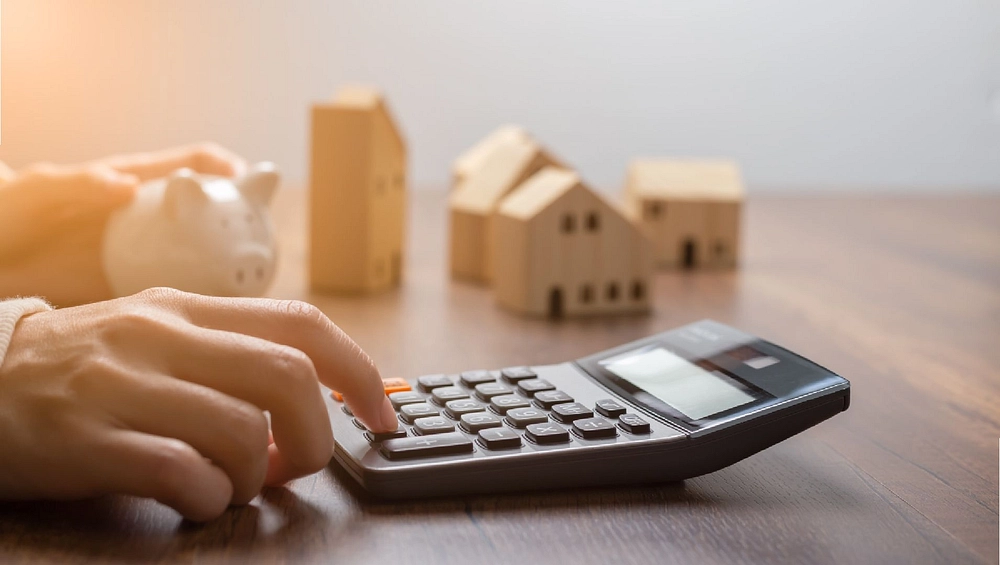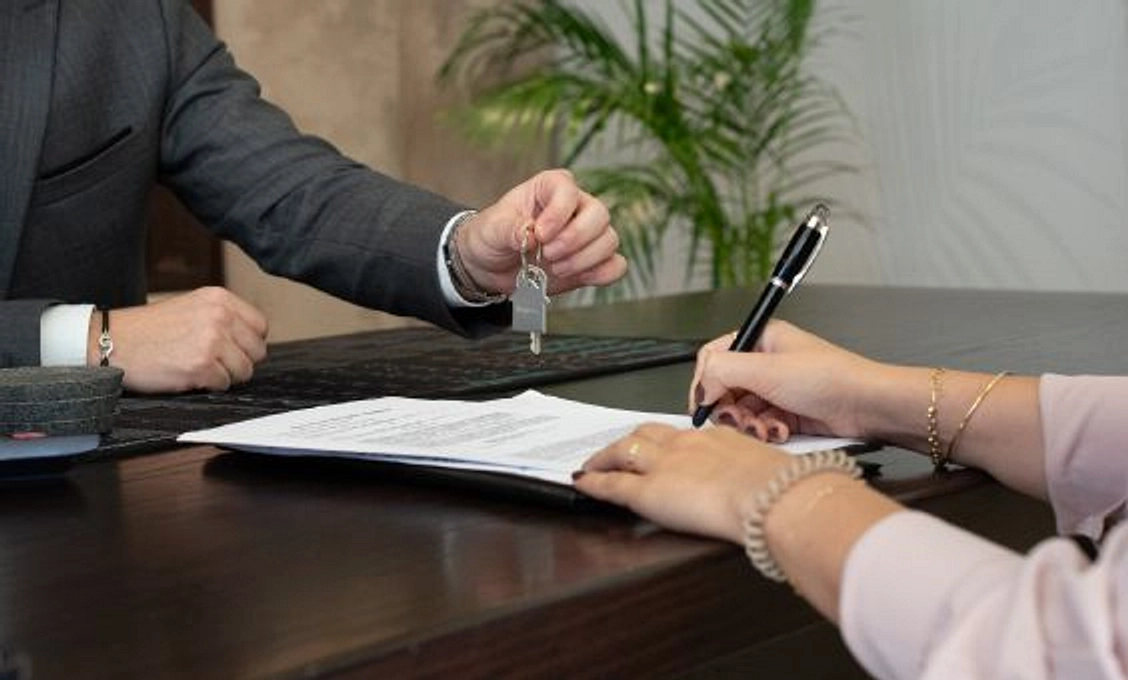Signature Collection
Explore SignatureDubai, with its stunning skyline, luxurious lifestyle, and tax-free income, has become a hotspot for real estate investment. If you are considering buying a home in this vibrant city, one of the critical decisions you'll face is whether to pay in cash or opt for a mortgage. Both options have their advantages and disadvantages, and the right choice depends on your financial situation, investment goals, and personal preferences. Let’s find out the key differences between buying a home in Dubai with cash versus taking out a mortgage.
Buy Property With Cash in Dubai
Purchasing property entirely with cash is a straightforward and cost-effective option. Cash offers are often more appealing to sellers, who appreciate the simplicity and certainty of receiving the full sale price upfront.
To buy a property in Dubai with cash, you need to start by researching and selecting a suitable option, either through online listings, real estate agents, or developers. A reliable agent will not only help you find the right house but will also provide you with other services like conveyancing, property inspection, and valuation.
You will also need a Sale and Purchase Agreement (SPA) if it’s an off-plan purchase. AT first, you’ll pay a deposit to secure the property and then complete the payment by transferring the remaining amount to the seller's account. Finally, the buyer registers the property with the Dubai Land Department to obtain the title deed in your name.
Advantages:
Immediate Ownership: By buying a house outright with cash, you become the owner of the property without any debt. This gives you complete control and peace of mind.
No Interest Payments: Paying in cash means you avoid the interest costs associated with a mortgage, potentially saving a significant amount of money over the long term.
Faster Transactions: Cash transactions are typically faster and more straightforward, with fewer formalities and paperwork compared to securing a mortgage.
Better Bargaining Power: Sellers often prefer cash buyers as the transaction is quicker and less likely to fall through. This can give you leverage to negotiate a better price.
No Credit Checks: Cash buyers do not need to undergo credit checks or meet the stringent requirements set by mortgage lenders, making the process smoother and more accessible.
Disadvantages:
Liquidity: Tying up a large sum of money in a property reduces your liquidity. This might limit your ability to invest in other opportunities or handle emergencies.
Opportunity Cost: The capital used for a cash purchase could potentially yield higher returns if invested elsewhere. Consider the potential gains you might forgo by locking your money into a property.
Limited Tax Benefits: Unlike some other countries, Dubai does not offer significant tax deductions for mortgage interest payments, making the tax benefits of taking out a mortgage minimal.

Mortgage Financing in Dubai
Obtaining a mortgage loan in Dubai involves several steps. First, you need to research and compare mortgage products offered by various banks and financial institutions to find the best terms and interest rates. Once you've chosen a suitable lender, you'll need to gather the necessary documents, such as proof of income, bank statements, and identification.
The lender will assess your eligibility based on factors like your credit score, income stability, and existing debts. After pre-approval, you can start property hunting, keeping your budget and mortgage conditions in mind. When you find a property, the lender will conduct a property valuation. If everything checks out, you’ll sign a mortgage agreement and complete the purchase. Finally, the property is registered with the Dubai Land Department, and you begin making monthly mortgage payments as agreed.
Advantages:
Leverage: A mortgage allows you to leverage your investment by borrowing money to buy a more expensive property than you could afford with cash alone. This can potentially increase your returns if the property appreciates in value.
Liquidity Preservation: By opting for a mortgage, you can keep your cash reserves intact for other investments, emergencies, or personal expenses.
Budgeting and Planning: Mortgages come with fixed or variable interest rates and repayment schedules, making it easier to plan your finances and budget accordingly.
Inflation Hedge: With a fixed-rate mortgage, your monthly payments remain the same even if inflation rises, effectively reducing the real value of your debt over time.
Disadvantages:
Interest Costs: Mortgages come with interest payments, which can significantly increase the total cost of the property over the loan term.
Eligibility Requirements: Securing a mortgage requires meeting specific eligibility criteria, including a good credit score, stable income, and a down payment. This can be a barrier for some buyers.
Market Fluctuations: If property values decrease, you could end up owing more on your mortgage than the property is worth, a situation known as negative equity.
Complexity and Time: The process of obtaining a mortgage involves more paperwork, fees, and time compared to a cash purchase. It also requires ongoing management of the loan and repayments.
Is it better to buy a property with cash or mortgage?
The decision between buying a house cash vs mortgage depends on your individual circumstances and financial goals. Here are some questions to consider:
What is your financial situation? Evaluate your cash reserves, income stability, and future financial needs.
What are your investment goals? Are you looking for long-term appreciation, rental income, or a primary residence?
How comfortable are you with debt? Consider your risk tolerance and attitude towards borrowing money.
What is the current market condition? Analyze the real estate market trends, interest rates, and economic outlook in Dubai.
Both cash and mortgage purchases have their merits. A cash purchase offers simplicity and peace of mind, while a mortgage allows for greater financial flexibility and leverage. By carefully weighing the pros and cons of each option, you can make an informed decision that aligns with your financial strategy and goals.
Whether you choose to buy your dream home in Dubai with cash or through a mortgage, the city offers a plethora of opportunities for a luxurious and fulfilling lifestyle.
FAQs
Mortgage rates in Dubai currently start from 3.94% per annum. The exact rate you receive will depend on several factors, including your credit profile, income, and the property's loan-to-value ratio. Additionally, banks may have specific requirements, such as minimum income levels and down payment percentages. Therefore, it is best to consult with a mortgage adviser who has access to a wide range of products and can help you find the most suitable mortgage for your specific needs and financial situation.
Off-plan properties in Dubai are bought based on architectural plans and are not completed yet. Ready-to-move properties, on the other hand, are fully built and available for immediate occupancy or are already occupied. Both primary (off-plan) and secondary (ready-to-move) properties have their own set of advantages and disadvantages.
Yes, borrowers are permitted to leave the country even if they have a mortgage to pay. However, they may need to keep the property as a buy-to-let and ensure that they continue to pay the instalments on time.
Yes, expats can apply for mortgage loans in Dubai from banks in the UAE, but they must meet certain restrictions and eligibility criteria. Applicants must be from countries on the bank's approved list, be either salaried or self-employed, and meet age requirements (e.g., ADCB requires non-residents to be over 21). Additionally, they must meet the bank’s minimum monthly income requirement post-tax, which varies between UAE residents and non-residents (e.g., ADCB requires a minimum monthly income of AED 15,000 for expatriate residents). The property must also be on the bank's list of approved developers and projects.
For more information, get in touch with us at Provident
 Apartments
Apartments Villas
Villas Townhouses
Townhouses Penthouses
Penthouses Commercial
Commercial See All Properties
See All Properties Commercial
Commercial Property Management
Property Management List Your Property
List Your Property Mortgages
Mortgages Conveyancing
Conveyancing Short Term Rentals
Short Term Rentals Property Snagging
Property Snagging Partner Program
Partner Program Currency Exchange
Currency Exchange PRYPCO
PRYPCO Ethnovate
Ethnovate Plots
Plots
